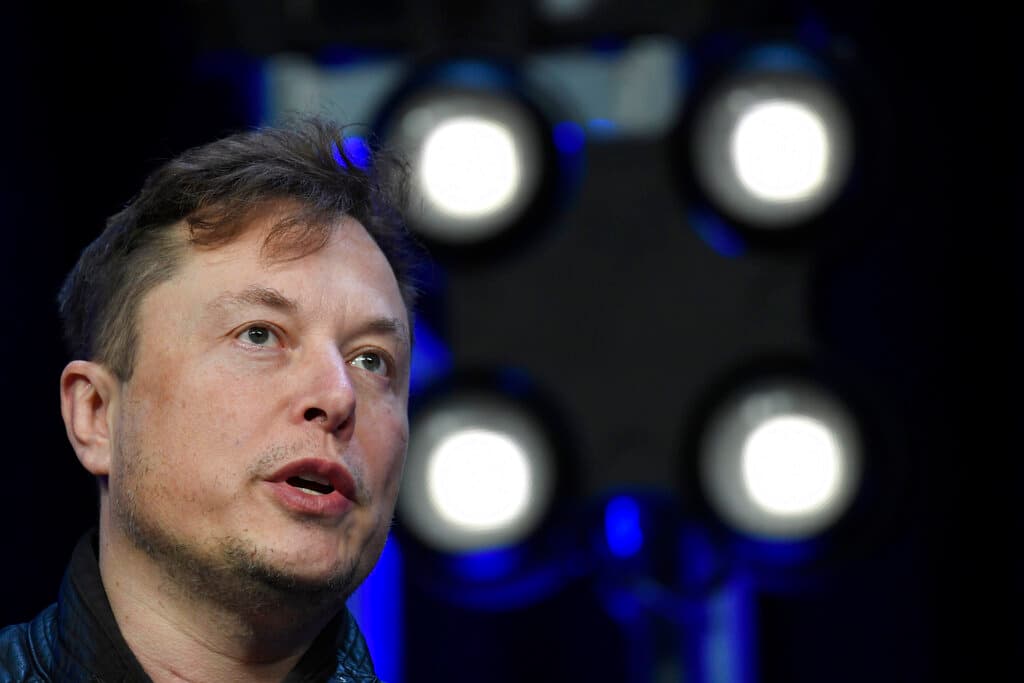Elon Musk Emerging as a War Hero in the Battle of Ukraine
The Kremlin’s anger represents a recognition that SpaceX has revolutionized the battlefield and that as a result Ukrainian warriors gained a significant edge over their Russian enemy.

As Twitter users go to battle against the website’s future owner, Elon Musk, Moscow is irate over the innovator’s contribution to Ukraine’s battlefield victories.
Russia’s space agency chief, Dmitry Rogozin, sent a note to reporters of the state-owned press accusing Mr. Musk’s SpaceX of “supplying the fascist forces in Ukraine with military communication equipment.”
In the note — to which, on Twitter, Mr. Musk helpfully attached an English translation — Mr. Rogozin last week cited an alleged confession by a captured commander of the 36th Marine Brigade of the Armed Forces of Ukraine, Colonel Dmitry Kormyankov.
“It turns out that the internet terminals of Elon Musk’s Starlink satellite company were delivered to the militants of the Nazi Azov Battalion and the Ukrainian Marines in Mariupol by military helicopters,” Mr. Rogozin writes.
“The word Nazi doesn’t mean what he seems to thinks it is,” Mr. Musk responded yesterday on his Twitter account. In a separate tweet, Mr. Musk later cryptically wrote, “If I die under mysterious circumstances, it’s been nice knowin ya.”
Russian intelligence agents have been linked to several killings and attempted assassinations of Kremlin enemies, often using poisoning methods such as radioactive-laced tea.
“That’s not funny,” Mr. Musk’s mother, Maye, tweeted in response to her son’s seeming suggestion that he could meet a similar fate. He replied: “Sorry! I will do my best to stay alive.”
Mr. Musk’s quirky sense of humor aside, the Kremlin’s anger represents a recognition that SpaceX has revolutionized the battlefield and that as a result Ukrainian warriors gained a significant edge over their Russian enemy.
Two days after the Russian invasion of Ukraine on February 24, Mr. Musk announced on Twitter that the “Starlink service is now active in Ukraine. More terminals en route.”
Part of Mr. Musk’s SpaceX, the service provides satellite-based broadband connectivity in places where the internet is unreachable. The Starlink system, consisting of a small dish that can be carried around, replaces broadband towers that are too distant or that were disabled by the Russians.
Kyiv’s digital minister, Mykhailo Fedorov, announced last week that there are “roughly” 150,000 active users of the SpaceX devices in the country each day.
Beyond civilian use — such as connectivity at hospitals that are under constant Russian bombardments — Starlink is responsible for some of Kyiv’s most impressive victories on the battlefield.
A video clip that is making the social media rounds depicts a Russian Mi-8 transport helicopter exploding while hovering above the Black Sea’s Snake Island this weekend. The chopper was reportedly obliterated by a Turkish-made Bayraktar-TB2 drone.
Provided by Turkey and others, drones have become a top Ukrainian weapon, used to attack Russian artillery positions, tank columns, and mobile command centers. Last week a Ukrainian drone reportedly sank two fast-attack Raptor crafts on the Black Sea, just off Snake Island.
The game-changing use of drones would have been impossible without the connectivity that Starlink provides. The system has become essential for Ukraine’s war efforts. Mobile, versatile, and highly adaptable in difficult terrains, it is also emerging as an ideal weapon in increasingly high-tech war theaters elsewhere around the world.
In Washington, meanwhile, some have tried to take credit for Mr. Musk’s aid to Ukraine. “U.S. quietly paying millions to send Starlink terminals to Ukraine, contrary to SpaceX claims,” a Washington Post headline blared last month.
The article involves a suggestion by the United States Agency for International Development that it has purchased thousands of Starlink terminals to deliver to Ukraine. That claim apparently contradicts announcements made by SpaceX executives that the company has donated the terminals to Kyiv free of charge.
Yet, as the Post notes, USAID was forced to amend its original contention, saying instead that the delivery of the systems to Ukraine was done in a “public-private partnership” between the government agency and SpaceX.
Starlink’s success in Ukraine, meanwhile, has been noticed elsewhere as well.
“The Islamic Republic shut down the Internet today to prevent any social unrest against the dramatic rise of bread prices in Iran,” a journalist and anti-regime activist, Masih Alinejad, tweeted over the weekend. “We Iranians call on you @elonmusk to offer satellite access to the internet,” she wrote.
As Russians today marched in an annual Red Square muscle-flexing commemoration of the World War II victory, the army is suffering major setbacks in Ukraine. Mr. Musk’s contribution there far outweighs his detractors’ sniping on Twitter.

